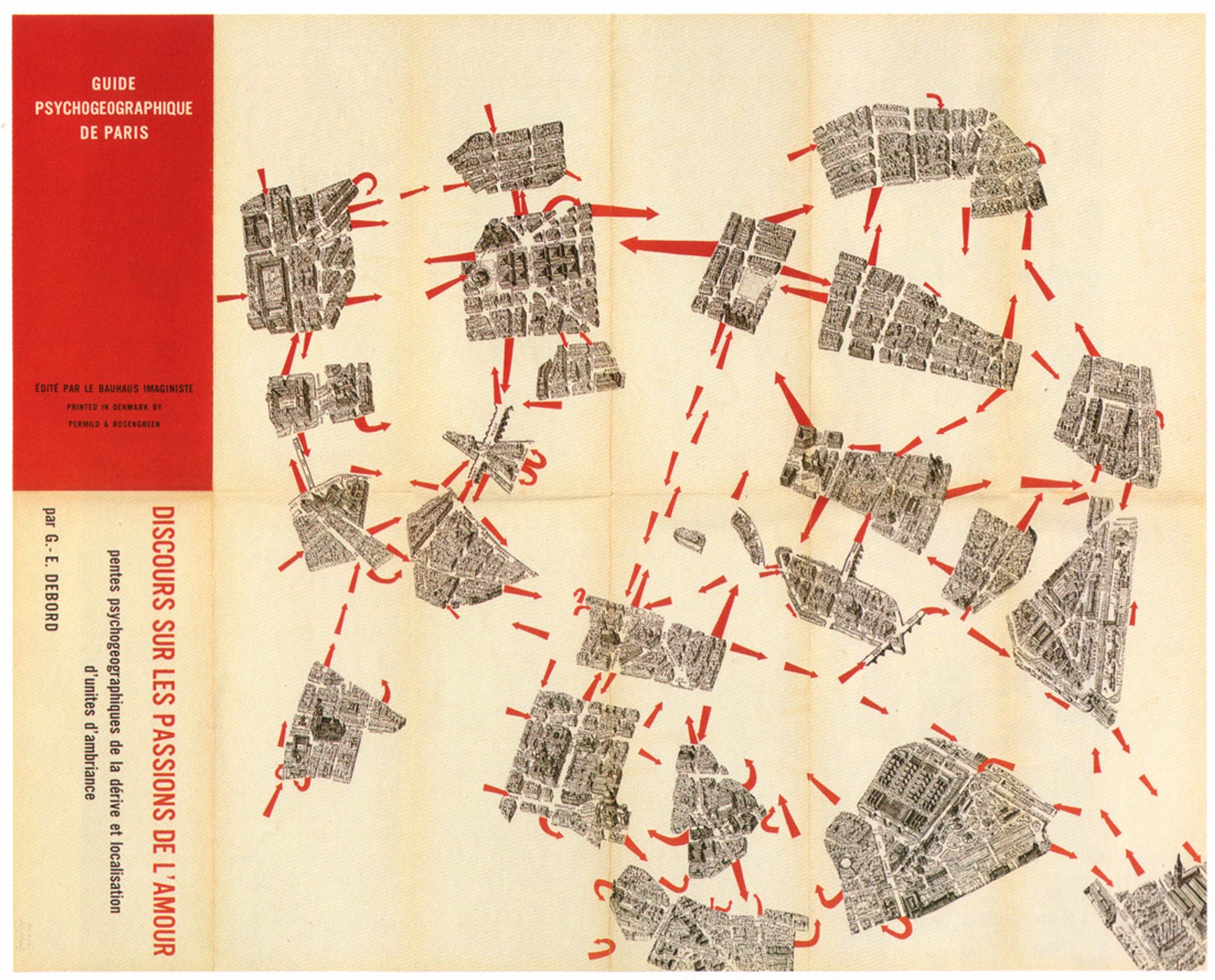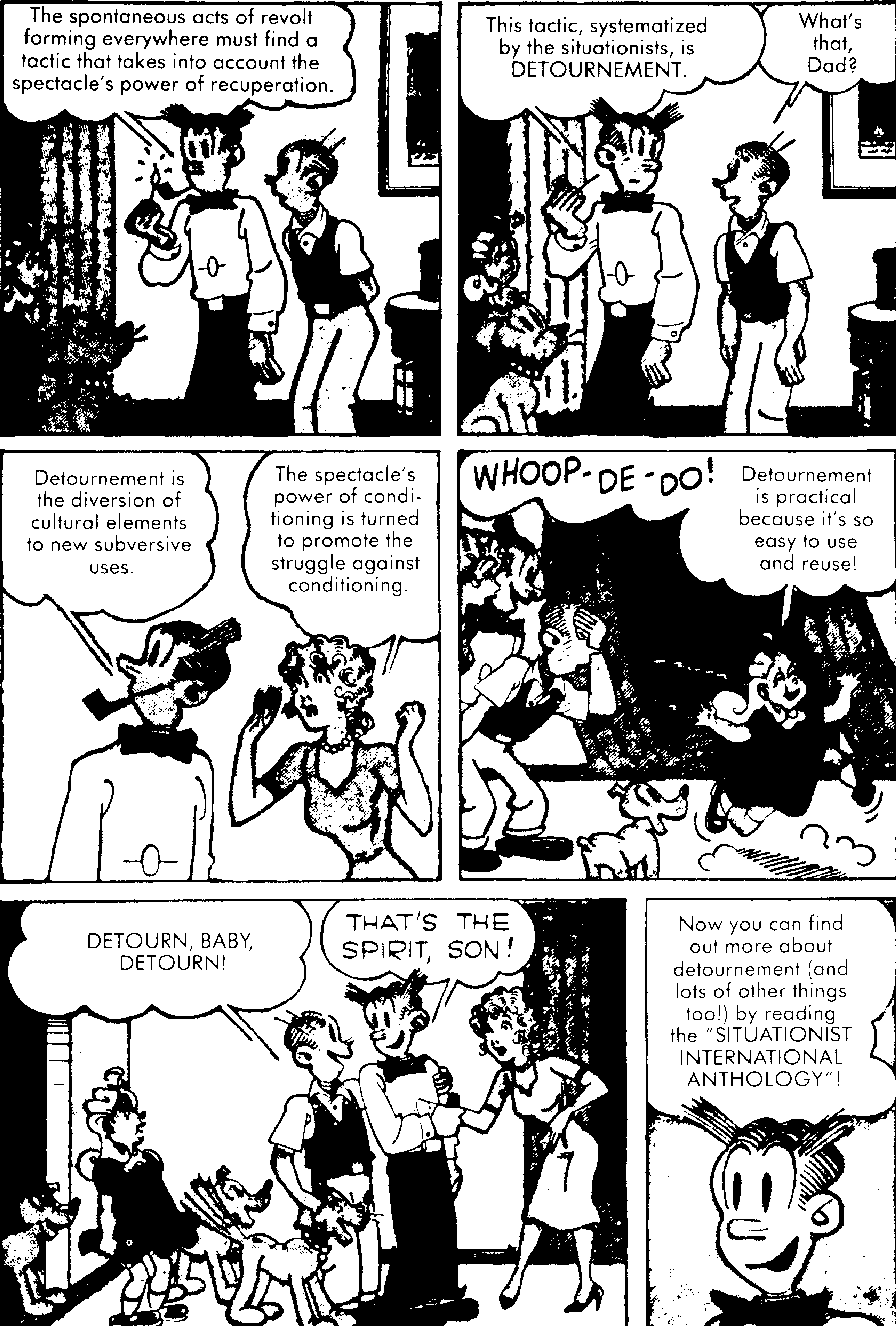An alliance of avant-garde artists, writers, and poets, the Situationists International formed in Paris in 1957 amid the growing consumer culture of the postwar period. They remained an official organization until 1972. The Situationists worked to address the alienation, exploitation, and fetishization of commodities that capitalist society was producing. However, they did so in a way that prioritized the “real” activities of everyday life, conceding that everyday life can be a continuous process of experimentation and iteration rather than the mere following of a particular ideology or script for a lifestyle. Fundamentally, they aimed to eliminate capitalism through the “revolution of everyday life.” Their method was the situation—a tool for the liberation of everyday life by negating the pervasive alienation produced by and accompanied by the spectacle of a culture of consumerism.
Guy Debord was a cofounder of Situationists International and one of the most prominent figures of the movement, in part due to his writing and publishing, which included books and journals dedicated to Situationist ideas. Beyond written statements, one of the most influential contributions by the Situationists is a particular set of methods for creative practices intended to subvert capitalist consumer culture. Three of these methods are détournement, dérive, and psychogeography. Détournement refers to turning expressions of a capitalist media culture against itself—for example, turning marketing slogans or corporate logos against advertisers or political representatives of the capitalist system. Dérive is “a mode of experimental behavior linked to the conditions of urban society: a technique of rapid passage through varied ambiances.”[ii] The term is literally translated into English as “drift,” and the Situationists would use this method of “drifting” through the urban environment in unexpected ways in an attempt to subvert the functional, commercial logics of the city and its extensions into media spaces. Psychogeography is “the study of the precise laws and specific effects of the geographical environment, consciously organized or not, on the emotions and behavior of individuals.”[iii] These methods have been adopted in various ways by successive generations of anticapitalist creative practitioners.


[i] Steven Miles, “Consumer Culture,” Oxford Bibliographies, last updated August 13, 2015, DOI:10.1093/OBO/9780199756384–0135.
[ii] Debord, “Theory of the Dérive.”
[iii] Debord, “Introduction to a Critique of Urban Geography.”
[iv] Adbusters, “About Us,” n.d., https://www.adbusters.org.
— —
see also: The Spectacle of Disintegration: Situationist Passages out of the Twentieth Century by McKenzie Wark (Verso, 2013)
The Beach Beneath the Street: The Everyday Life and Glorious Times of the Situationist International by McKenzie Wark (Verso, 2015)
The Situationist International Anthology, edited and translated by Ken Knabb (2013) / free download at libcom
Society of the Spectacle by Guy Debord, 1967 (free PDF download from libcom)
👉 Home